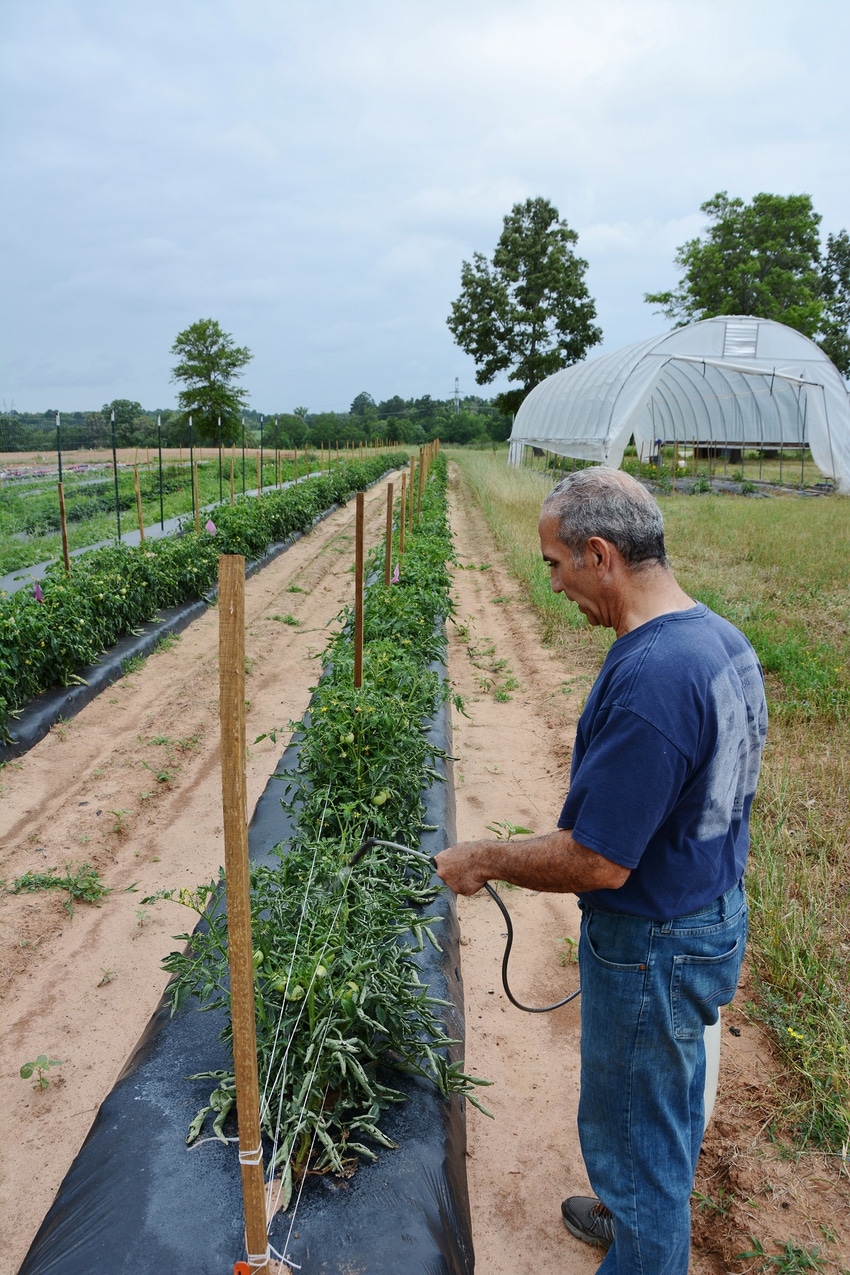
Texas vegetable producers and gardeners are seeing pest problems pop up across the state.
Conditions have been good for vegetable production around much of the state following mild spring conditions and ample rains, but the weather is also setting the stage for pests, says Dr. Mike Merchant, AgriLife Extension entomologist, Dallas.
Merchant says spider mites are beginning to emerge in home gardens.
“My personal garden is showing signs of spider mites right now,” he says. “Although I choose not to spray my tomatoes, some gardeners will want to extend the life of their tomatoes with treatments such as insecticidal soap or horticultural oil.”
Merchant said he has not received reports or calls regarding stink bugs but that several varieties, including the Bagrada stink bug, a variety new to Texas and “generalist” feeders that usually prefer vegetables in the cole family can cause problems for vegetables.
“We expect to see Bagrada stink bug to become common in mid- to late-summer,” he says.
Merchant says commercial growers and gardeners alike should be aware of squash vine borers, which lay eggs on plant stems. The emerging caterpillars bore into and hollow out the vines, eventually killing the plant.
TREAT EARLY
“The key to squash vine borer control is to treat early, before borers enter the stems and damage shows up,” he said. “Two applications of a labeled insecticide, seven days apart, should help control the newly hatching caterpillars before they enter the stem. Sprays must penetrate the canopy to reach the stems, where the borers lay their eggs.”
Merchant says gardeners with just a few plants may want to go to the trouble of treating vines individually. They can cut the vine or use a syringe to inject Bacillus thuringiensis, naturally occurring bacteria that control pests, inside the stem.
Squash bugs represent another tough pest that typically emerges when mid-summer as temperatures rise.
“Squash bugs are challenging to control,” he says. “Some of the pyrethroid insecticides can be effective, but users should be aware of the pre-harvest interval on the label,”
About the Author(s)
You May Also Like




